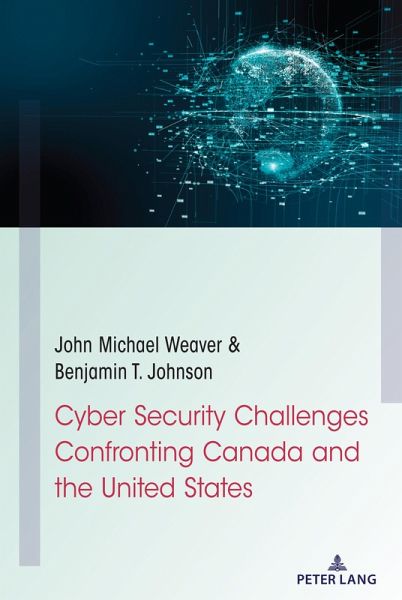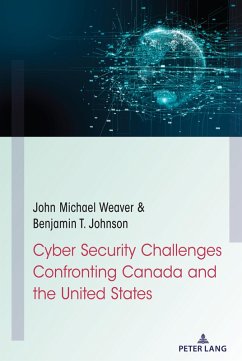
Cyber Security Challenges Confronting Canada and the United States (eBook, ePUB)
Versandkostenfrei!
Sofort per Download lieferbar
Statt: 100,65 €**
78,95 €
inkl. MwSt.
**Preis der gedruckten Ausgabe (Gebundenes Buch)
Alle Infos zum eBook verschenkenWeitere Ausgaben:

PAYBACK Punkte
39 °P sammeln!
This study turned the tables on a conventional understanding of the four instruments of national power (diplomacy, information, military and economic measures/D.I.M.E.) to see how potential adversaries could use these against the national security interests of Canada and the United States. Moreover, this particular work focuses on qualitative research regarding cyber threats that have continually beleaguered these nations by malevolent actors mostly over the last five years. This study also affords consideration to how nefarious individuals, non-state actors, or nation states can implement the...
This study turned the tables on a conventional understanding of the four instruments of national power (diplomacy, information, military and economic measures/D.I.M.E.) to see how potential adversaries could use these against the national security interests of Canada and the United States. Moreover, this particular work focuses on qualitative research regarding cyber threats that have continually beleaguered these nations by malevolent actors mostly over the last five years. This study also affords consideration to how nefarious individuals, non-state actors, or nation states can implement the instruments of national power through the application of a new model named the York Intelligence Red Team Model-Cyber (YIRTM-C) using sources guided by the Federal Qualitative Secondary Data Case Study Triangulation Model to arrive at results.
Dieser Download kann aus rechtlichen Gründen nur mit Rechnungsadresse in A, D ausgeliefert werden.













